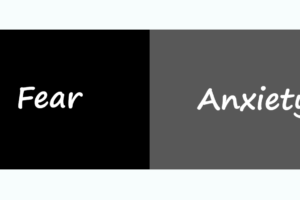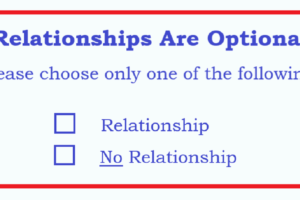Your next door neighbor pulls into their driveway in a brand new black Mustang convertible. You rush over to your neighbor as they are getting out of their new car and you exclaim, “It is gorgeous! I want one, too! I am so jealous!”
Are you jealous of your neighbor with the new car? Or are you envious?
The terms jealousy and envy are frequently used interchangeably. However, they are very different. Do you understand the difference?
Jealousy
Jealousy is about what you fear you will lose. For example, you fear your partner will leave you for someone else. Jealousy is a reaction to a perceived threat. It frequently contains an acute sense of betrayal and possessiveness.
An important factor with jealousy is that it involves a three-person situation: you, someone you have a close connection with and the person you perceive is threatening that connection. It is about a rivalry. This can be an intimate (romantic) relationship, a co-worker, neighbor, friend or a sibling. For example:
- jealousy that you will lose out on a promotion to a co-worker
- jealousy your friend will spend less time with you, and more time with a third friend
- jealousy that your parents will spend more time with a sibling than with you
One of the problems with jealousy is that it involves thinking about that second person in a relationship as a “possession” to be won or lost. It is a composite of:
- fear of losing what you have (promotion, time, relationship, affection)
- resentment toward a second person for potentially obtaining what you have (possess) and
- resentment toward your boss, friend, partner or parent for not keeping the third person at bay
When someone feels jealous, s/he is aware of an unpleasant feeling occurring. Jealousy is a primal or primitive feeling that feels very uncomfortable. Also, people who feel jealous are usually very verbal about what they are feeling.
Jealousy is an unpleasant feeling that people tend to share with others.
Envy
Envy is about wanting what someone else has. In the example at the beginning of this blog, when you take note of your neighbor’s new Mustang and you say you want one, too, that is envy.
When you feel envious, you tend to perceive yourself as more deserving than the envied person, for example, “I work hard, I deserve a new Mustang!” or “I work harder than my neighbor! I deserve a new Mustang!”
While jealousy involves three people, envy only requires two. It is personal. That is why you are more inclined to feel envy or resentment for someone you know (sibling, neighbor), than for a stranger (a celebrity).
And there tends to be resentment toward the person you envy. When you feel envy toward someone else, you resent them for a possession or advantage they have that you wish you had. Again, it is personal.
Jealousy is frequently verbalized but envy rarely is. Envy is a feeling that simmers. It is likely the person you have envy toward may never know you feel this resentment. Mostly because envy is an uncomfortable, unsettled feeling. It is almost always irrational. The person who is envied is not typically at fault for having what the envier wants. It is a misplaced resentment.
Envy tends to be irrational and involves a sense of inferiority. It doesn’t usually contain a sense of betrayal like jealousy does.
Envy can be benign or malicious:
Benign envy is feeling you have a perceived disadvantage over the person who is being envied. An example would be you saying, “I envy my co-worker getting a promotion. I could have gotten that promotion if I had an Ivy League college education.”
Malicious envy is about you feeling you have an advantage over the person being envied. An example would be you saying, “I envy my co-worker getting a promotion. I should have gotten that promotion because I have an Ivy League college education.”
Jealousy and Envy
To make it even more difficult to understand the difference between jealousy and envy, you can feel both of them at the same time!
Example:
Jeremy and Heather are married. Recently, Jeremy has been working overtime on a work project with a co-worker, Amber. Heather feels both jealousy and envy.
Jealousy: Heather feels she may “lose” Jeremy to Amber.
Envy: Heather is envious of the time Jeremy is spending with Amber. She wishes he would spend that much time with her.
Example:
Nicholas, age 7, and Ethan, age 5, are brothers. Kristen is a newborn in the same family. Nicholas and Ethan feel both jealousy and envy toward their newborn baby sister.
Jealousy: Nicholas and Ethan fear they are losing the attention of their parents and any guests who come to see the new baby.
Envy: Nicholas and Ethan are envious of the time Baby Kristin receives from their parents and guests who come to see the baby.
Why Does it Matter?
What do you do with your feelings of jealousy and envy?
Unchecked jealousy frequently destroys relationships. Emotional energy is wasted chasing down what you think may be true vs. the reality. Jealousy is frequently a red flag of domestic abuse in an intimate relationship. It is a tactic of control. Acknowledging your jealousy to yourself can focus your attention on fact vs. fantasy. Admitting and acknowledging your irrational jealousy to your significant other can help you move you toward a more honest and open relationship.
Envy is about wanting the ease of someone else’s life or wanting something that someone else has. This speaks to your confidence and self-esteem. Understanding how to feel more comfortable with your own life and your accomplishments goes a long way to decreasing envy. This may include daily self-affirmations, self-help books or even therapy.
Take Away Point
Jealousy is about what you are afraid of losing. Envy is about what you want or covet. Knowing whether you are experiencing jealousy or envy can help direct your emotional energy. With jealousy, you can look at the facts vs. your fantasy. You can determine if your envy is benign or malicious. Put your emotional energy into self-esteem building!
With warmest regards,
Thank you so much for reading this blog. If you enjoyed the content, please check out other blogs at:
https://relationshipsrelearned.com
https://rvingnomads.com
To be notified of new posts, please enter your email address and click on the Subscribe button.












